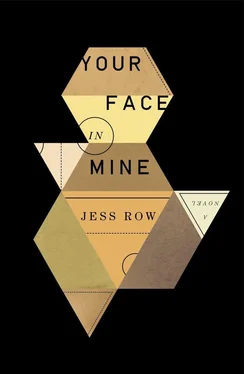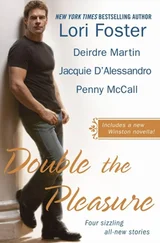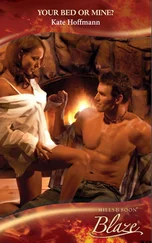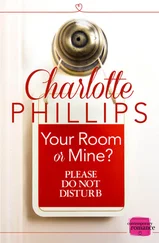So you wouldn’t describe yourself as very religious?
Are you talking about in a black context or a larger context?
Is it different?
Of course it’s different. The black community still treats the church as central. You can’t be black, in a certain sense, without a relationship to the church. An appreciation for it. I’ve got that. But if you’re talking about a deep, personal, everyday, transcendent need for prayer and reflection, an immersion in the Bible, I mean, faith , then no. I’m culturally Baptist the way lots of Jews are culturally Jewish. It’s imperative to me that the kids are raised in the church. Not because I’m so convinced of the moral edification it offers, but because it grounds them in the community and the tradition. It’s all about integrity and wholeness for me, not Jesus and Jehovah. Maybe you got a sense of that the other day.
I did.
You should come again. You’d be welcome, you know.
I will. It’s on my list.
She laughs again.
What, you don’t make lists?
My whole life is lists. It’s just that there’s something so earnest about you, Kelly. You want to understand . You’re like one of those skinny college kids in plaid shirts in 1961, listening to Mingus or Smokey Robinson or something and trying to be hip. Can I be honest here? I keep thinking I’m being played. That’s my cynical, heard-it-all, twenty-first-century reaction. It’s like you’ve been in a bubble the last, oh, thirty years of your life.
I don’t want anything from you, I would so desperately like to tell her, to reassure her, just an hour of polite conversation, for now, and in the long term, perhaps, your forgiveness, your acknowledgment that none of this was my idea. The problem is that I’m trying too hard to do a good job. I’m trying so sincerely to be fake. And now I’m stuck.
So, I say, in your view, there’s just no excuse, anymore, for a naïve perspective, an innocent question?
There would be if you came from, say, Sri Lanka. Or Mars.
Then the white observer, the interlocutor, is in kind of an impossible bind, right? If I’m cynical and worldly I get called out for making assumptions and appropriating a black perspective. If I’m innocent and careful I get called out for false naiveté. Not much wiggle room, is there?
We come to the corner of North Broadway and Baltimore. Here the grassy median gives way to a cluster of trees, a small plaza, benches, now filled with dog walkers, neighborhood wanderers, residents in scrubs uncoiling in the unfamiliar sunlight. Underneath the trees there’s a small, improbable statue, hardly more than life-sized: a muttonchopped man in a frock coat, turn of the century, Theodore Roosevelt style. LATROBE inscribed on the marble behind him. Baltimore is full of these unexpected, anonymous tokens of a forgotten civic life.
Oh, Kelly, she says, and turns to look me full in the face for the first time. Are you really asking me, a black woman, about wiggle room?
Then I’m just supposed to stay frustrated?
Something like that.
The light still isn’t changing; I wonder for a moment if it’s broken, if we should just leap across, but of course what’s really happening is time is growing elastic, stretching out like taffy, in the course of an awkward, unexpectedly terrible, somehow ruined, encounter.
You know what amazed me about Martin, when we met? she asks. That he could talk to anybody. I mean, that should be my forte. But Martin is a true genius at giving people the benefit of the doubt. It must come from a business background. To him anyone is a potential customer. Or investor, or partner, or something. But that’s not the point, really, because that makes it sound mercenary, and it’s not. He has the rare gift of turning self-interest into something that’s almost like a Christian virtue.
Whereas you?
Whereas I just carry around baggage , I guess. I mean, you wouldn’t know it, would you? I am the epitome of a black upwardly mobile female blah, blah, blah. But as it turns out I can’t hold a conversation with a white person for more than five minutes on the subject of race. Maybe those two things go together.
Finally the light turns green, and she sprints across, lock-legged, stalking fury and frustration. I follow two steps behind, and not until halfway down to Pratt does she give me a sideways look. Sorry, she says. I’m upset. I’m uncomfortable. It’s no excuse for acting like a baby.
Something has passed between us, I’m just beginning to realize, in that half-block, that fifty yards of uneven and rutted city pavement. Her face, uncomposed, is trying to regain control of itself. In a different age, in a Victorian novel, I would say, my dear lady, and touch her elbow, or offer her a handkerchief. I have the urge to be gallant and rise above it all. But we live in an age allergic to suppositions. The pause we’re in now is the one where she’s expected to say, These cases are really getting to me, I need a vacation, or, I had some bad news before we left the office, or, My allergies are acting up and my sinuses are killing me. She’s not going to offer an explanation; I know that much. We’ve passed beyond social lies. Where we’ve arrived, on the other hand, is an open question.
It seems to me, for a moment, that Martin’s decision — that Martin’s real existence, the real fake black man that he is — has, subtly, indefinably, already seeped into the world around us. That we are living in an ersatz twenty-first century.
You know I spent every weekend down here? I say. Fell’s Point was my stomping grounds. The best record store in Baltimore was two blocks that way. Reptilian Records. I spent every spare dollar I had in that place. Between that and the Salvation Army and the vintage store down on Aliceanna and Charm City Coffee down on Thames — that was the circuit. And Jimmy’s. That was the only place we could afford to eat.
Mom and Dad didn’t give you much of an allowance?
I wasn’t really into capitalism. I used to wear a button that said Property is theft . Which is easy to say, of course, when your basic needs are all paid for. But at least I was consistent. I don’t think I owned a single new piece of clothing until I went to college.
Saved your parents a lot of money.
In theory, but all of it was poured back into music in the end. That was the property I cared about. Drums, cases, cymbals, sticks, gas for when we went on tour. It was a pretty expensive hobby.
What kind of a band were you in?
I’d have to know your point of reference. Ever heard Fugazi?
Fu-what?
Helmet? Jesus Lizard? Jawbox?
I had a roommate at Spelman who was into the Red Hot Chili Peppers and Jane’s Addiction.
Okay. Well, we were like Jane’s Addiction without the funk, and the falsetto voices, and all that L.A. druggie attitude.
But all Jane’s Addiction was was funk, and falsetto—
I think I’d have to play it for you. We had a lot of dissonance, a lot of noise, but still songs , in the end. We were political and artsy. And for a while we actually had a following. Put out three EPs and one LP. Toured all around the East Coast.
This was all in high school? Any chance of a reunion?
None, I say, keeping my breathing steady, because our singer — his name was Alan — he died of a drug overdose. In 1994.
An overdose?
The nonaccidental kind. He’d already been hospitalized once for depression. A classic late-adolescence bipolar shift.
That must have been devastating. And it was here? No wonder you never wanted to come back.
It was all too convenient, really. Because my parents moved away. With that, and Alan’s death, I fell into this groove of thinking I didn’t belong anywhere. Right around that time I was getting fluent in Chinese, and all my energy was wrapped up in that, and hanging out with kids from Amherst who’d gone to prep school in Switzerland — it was just easy to think I was some kind of cosmopolite, some Salman Rushdie character, on the run, a homeland that doesn’t want me back. I mean, not literally, but—
Читать дальше












